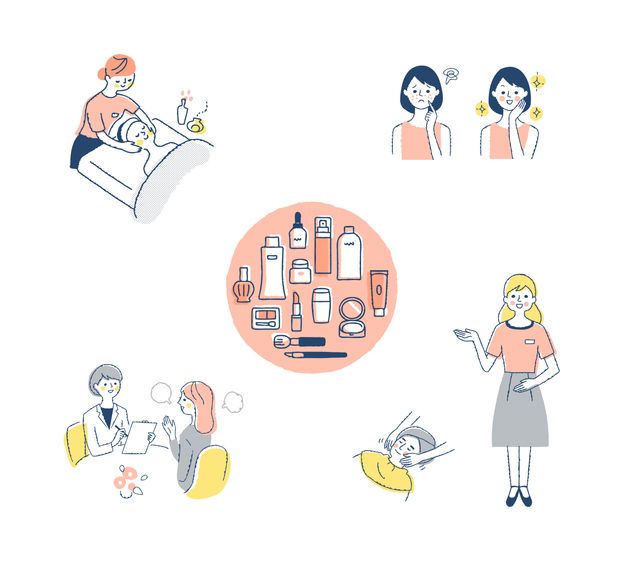
Book Now to Experience
Acne Treatment
1 Minute Self-Registration
Date should not be before minimal date
Author: Leila Tan|Updated: 23 July 2024
Get to know more about New Beauty Acne Treatments as well as other Acne Treatments.

1
What is acne
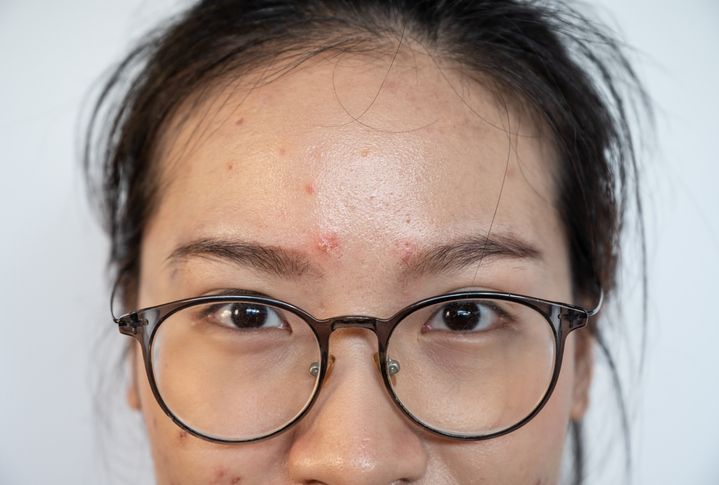
Acne is a persistent, inflamed skin disorder that most commonly affects the face, back, chest, and upper arms and results in patches and pimples. Acne is formed as a result of clogged hair follicles beneath the skin. The dead skin cells and sebum oil that helps prevent skin from drying out the clog pores causes outbreaks of lesions which are also known as pimples or zits.
Although it can happen at any age, it frequently happens during puberty when the sebaceous glands are active. Male hormones released by the adrenal glands in both males and females stimulate the glands, which then create oil. This inflammatory acne that affects the skin's sebaceous glands and hair follicles are also home to fine hairs.
Although it is not harmful, skin scars may be a result of this condition.

2
What is severe acne?
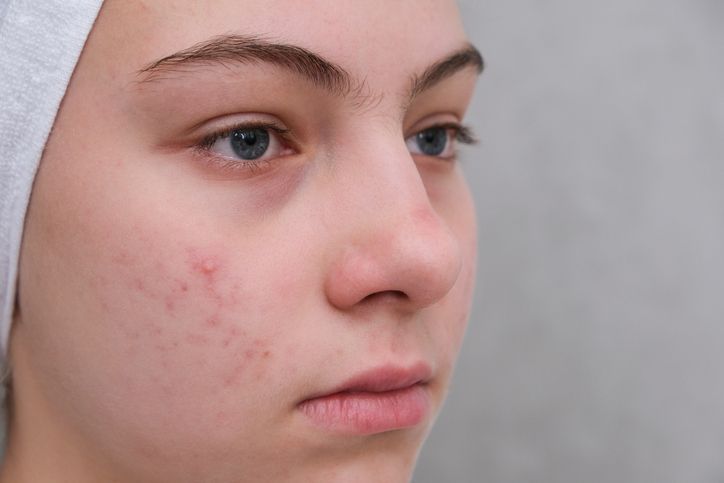
More than a few tiny pimples that go away in a few days define severe acne. Large cysts or inflammatory nodules that cover a lot of skin are typical of people with severe acne. Additionally, severe acne can result in swelling, scarring, and painful, rigid sores.
Read More

3
What is acne treatment
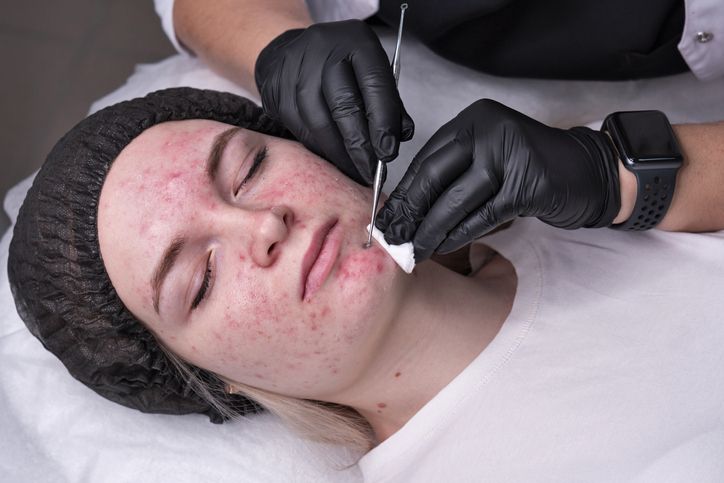
The severity of the acne will determine how it is treated. Before acne symptoms become better, treatment may be needed for several months. Any patient with acne should exercise caution when trying a new treatment because many medications have potential negative effects.
Depending on your age, the type and severity of your acne, and how much work you're prepared to put in, your doctor will propose a treatment plan. Discuss the advantages and disadvantages of any drugs or other therapies you are considering with your doctor.

4
Pro's of acne treatment
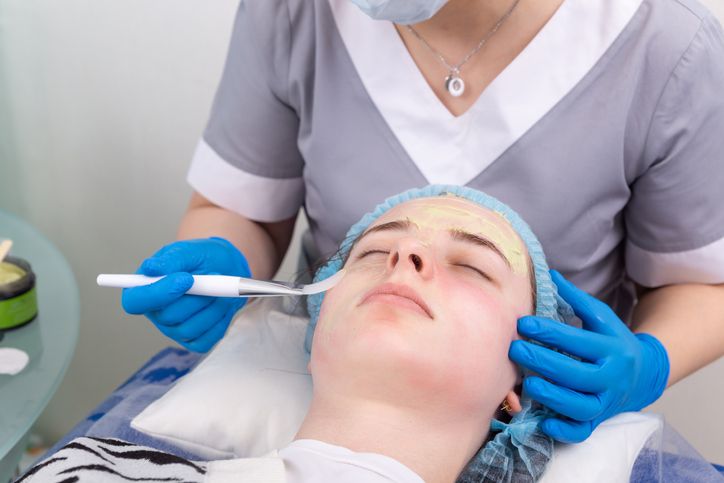
Early acne treatment may help to lessen scarring and avoid acne scarring. In general, the likelihood of scarring increases with the severity of the acne. While scarring from severe acne is more likely, picking at minor acne can nevertheless leave scars.
Stop minor acne from getting worse. Early acne therapy can stop a few pimples from developing into a large number of blackheads, whiteheads, and severe, deep acne.
This helps to lessen the likelihood that you'll require greater acne treatment. For severe acne to resolve, powerful medication is required. These medications need close dermatological supervision and have greater potential adverse effects.

Book Now to Experience
Acne Treatment
1 Minute Self-Registration
Date should not be before minimal date

5
Acne treatments
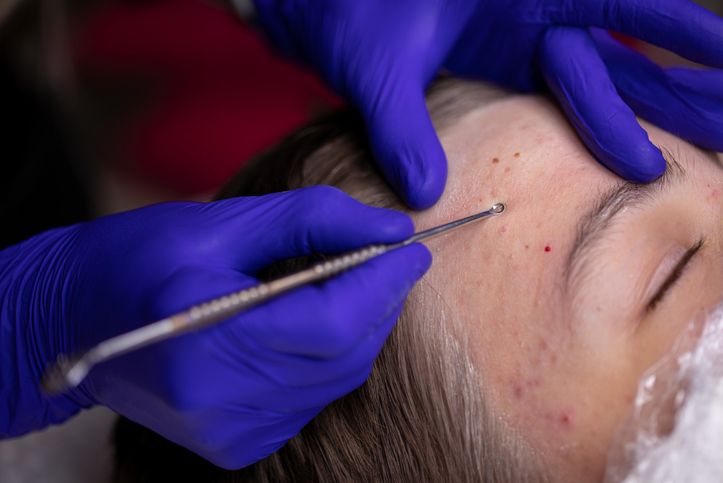
New Beauty Acne Treatment
The Acne Treatment is a new treatment from New Beauty for skin that is prone to breakouts. First, the dual spiral suction plus drainage technology exfoliates dead skin cells and clears clogged pores at the same time, reducing acne infection and inflammation. The face is then treated with a moisturising serum to control sebum output and encourage collagen synthesis.
Future breakouts of acne are less likely if there is insufficient oil. Acne, blemishes, blackheads, whiteheads, pockmarks, enlarged pores, dry skin, acne scars, and dull skin tone are all goals of the acne treatment.

6
Benefits of this treatment
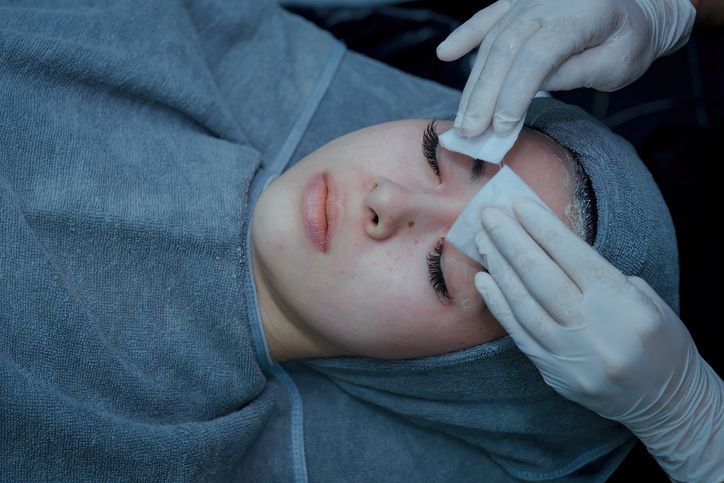
Removes Dead Skin Cells
Excess dead skin cells are removed using dual spiral suction and drainage technology to keep pores from becoming clogged in the future.
Hydrating Essence
A medical-grade moisturising serum may penetrate the deepest layers of the skin to nourish and hydrate the skin tissues while also soothing acne-prone skin. Additionally, it soothes the sebaceous glands to stop overproduction of oil.
Visible Results
You will have less acne breakouts, acne scarring, and various types of acne as the treatment goes on. Watch as your skin becomes healthier, more moisturised, and lighter with less of an oily sheen!
Non-invasive Treatment
The acne treatment is non-invasive, so there is no need for oral antibiotics, surgery, incisions, injections, or acne medication. Most persons with moderate to severe acne, according to our in-house beauticians, are candidates for this treatment.
Read More

7
How does it work?
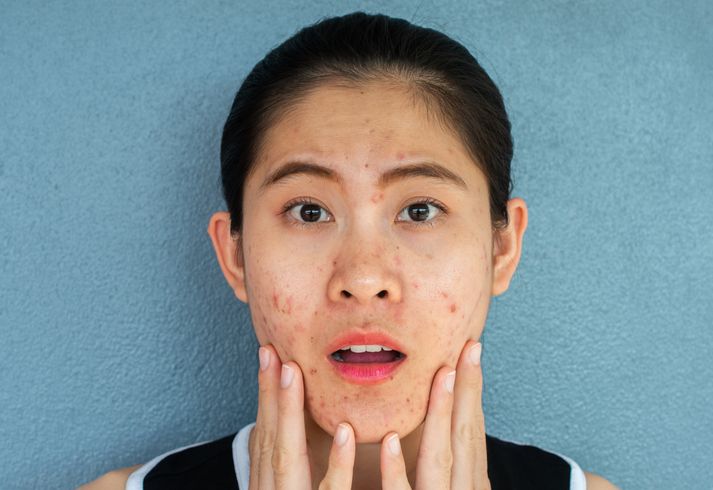
Step 1: The consultant will outline the procedure's steps and theoretical underpinnings. The beauty therapist then performs a patch test to make sure the probe hasn't caused any irritation.
Step 2: The vacuum microdermabrasion and deep cleaning process is started by the twin spiral suction/drainage probe. Exfoliation is used to remove dead skin cells, oil, and grime that have been trapped in the pores and on the surface of the skin. The acne inflammation and infection should gradually subside if the pollutants are removed.
Step 3: To balance the water-to-oil ratio, calm the oil glands from future overproduction of oil, and promote collagen growth, the moisturising serum is injected into the unclogged skin. This results in treating acne, fewer new outbreaks, and a finer complexion for the skin.

8
Topical medications
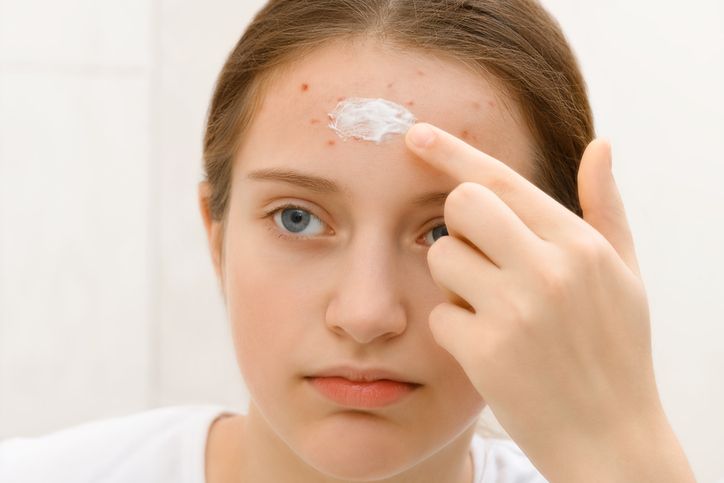
You will typically begin therapy with a mix of topical treatments for mild to moderate or moderate to severe acne. Azelaic acid, retinoids, antibiotics, and combination creams and gels are some of these drugs.
Benzoyl peroxide
As an antiseptic, benzoyl peroxide helps to lessen the amount of microorganisms on the skin's surface. This substance is thought to function by eliminating the acne-causing bacteria. It also has an anti-inflammatory action, which helps to lessen the number of whiteheads and blackheads.
Typically, benzoyl peroxide is sold as a cream or gel. You can try benzoyl peroxide-containing over-the-counter medications for mild acne, or your doctor may advise you to do so. To effectively treat acne, it often takes at least four weeks of consistent use.
Numerous well-known skincare companies also produce products using benzoyl peroxide, albeit at a lower concentration.
Antibiotics
These destroy extra skin bacteria and lessen inflammation and redness. The germs that can infect clogged hair follicles on the skin are also destroyed by topical medicines.
You might use a retinoid and an antibiotic together for the first few months of treatment, applying the antibiotic in the morning and the retinol in the evening. They can be administered once or twice a day as a lotion or gel.
Topical antibiotics are typically not advised as a stand-alone acne treatment due to the danger of antibiotic resistance in skin bacteria. Antibiotic resistance may be prevented by combining benzoyl peroxide with a topical antibiotic. To lessen the possibility of antibiotic resistance arising, benzoyl peroxide is frequently added to antibiotics.

Book Now to Experience
Acne Treatment
1 Minute Self-Registration
Date should not be before minimal date

9
Oral medications
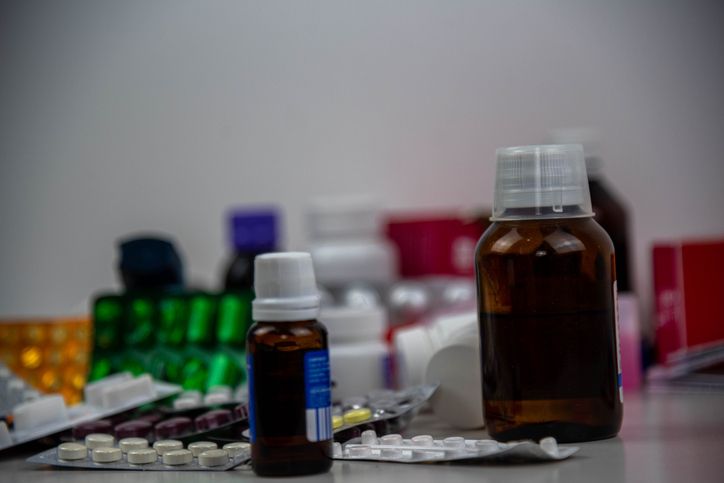
Anti-androgen agents
If oral antibiotics are ineffective, women and adolescent girls may be prescribed the medication spironolactone (Aldactone). It functions by preventing androgen hormones from having an impact on the oil glands. Painful menstruation and sore breasts are potential side effects.
Isotretinoin
A vitamin A derivative is sotretinoin. If other treatments haven't worked for someone's moderate or severe acne, it might be given. Depression, serious birth abnormalities, and inflammatory bowel disease are among the possible side effects of oral isotretinoin.

10
Therapies
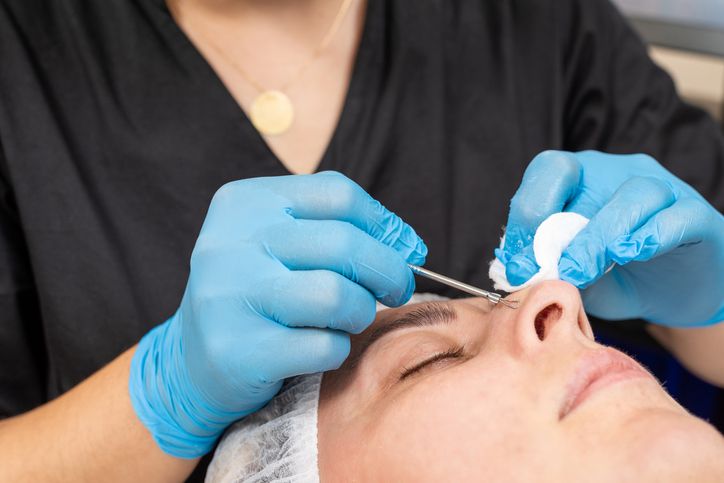
Light therapy
Numerous light-based therapies have been tested, with varying degrees of success. The majority will necessitate numerous trips to your doctor's office. To identify the best procedure, light source, and dose, more research is required.
Chemical peel
A chemical solution, such as salicylic acid, glycolic acid, or retinoic acid, is applied repeatedly during this process. This procedure treats minor acne. It might make the skin look better, but the improvement is usually temporary and requires more treatments.
Steroid injection
A steroid medication can be injected directly into nodular and cystic lesions to treat them. Rapid recovery and a reduction in discomfort are the outcomes of this therapy. Skin thinning and discolouration in the treated region are possible side effects.

11
Home remedies for acne treatment
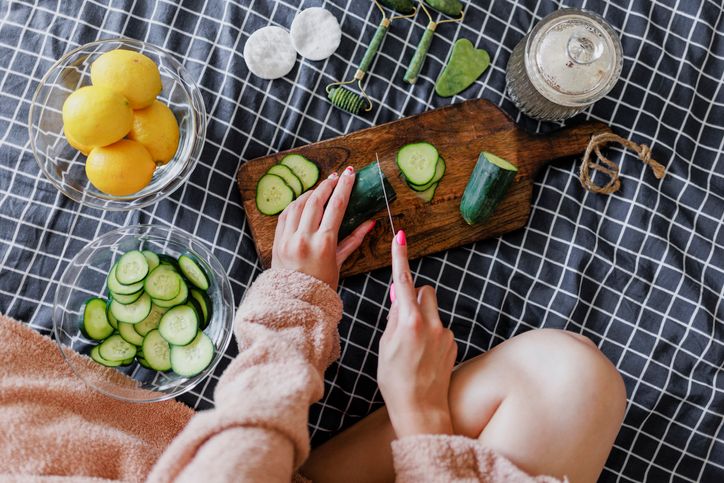
Apple cider vinegar
The unfiltered juice from crushed apples, or apple cider, is fermented to produce apple cider vinegar.
1) Combine 3 parts water with 1 part apple cider vinegar (use more water for sensitive skin). 2) Use a cotton ball to gently apply the mixture to the skin after cleaning. 3) After 5 to 20 seconds, rinse it with water, then pat it dry. 4) As necessary, repeat this procedure 1–2 times daily.
Research has shown that it, like other vinegars, can kill a variety of bacteria and fungi.
Honey
Honey has several therapeutic benefits.
1) To make a paste, combine 2 tablespoons of honey and 1 teaspoon of cinnamon. 2) Apply the mask on your face after cleansing, and keep it on for 10 to 15 minutes. 3) Completely rinse the mask off, then pat your face dry.
Warm water should be used to wash your face before using this mask. Use warm water to rinse the honey.
Cucumber
Cucumbers can soothe the skin, lowering inflammation, discomfort, and itchiness. As a result, they may be able to reduce inflammation directly linked to acne.
1) Blend one small cucumber and one cup of oatmeal to make a paste. 2) Apply it to your face by combining 1 teaspoon of this mixture with 1 teaspoon of yoghurt. 3) Rinse after 30 minutes after leaving it on.

12
Skin care tips
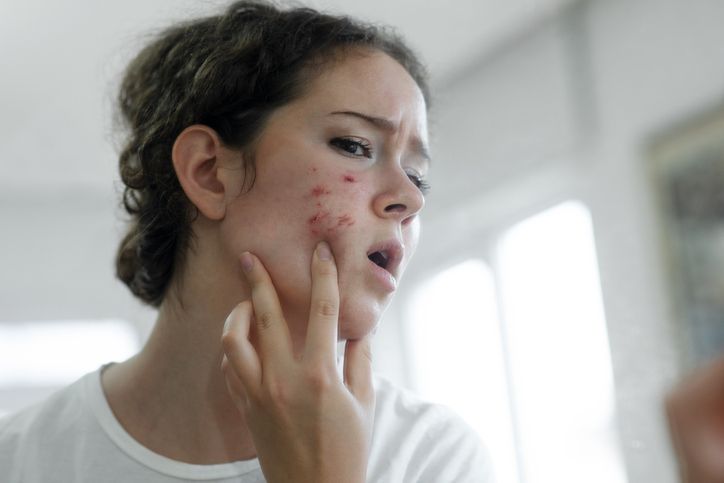
1) Wash your face with mild soap or a gentle cleanser twice a day with your hands. 2) Maintain a good skin care routine. After perspiring and up to twice a day, gently cleanse your face. Pick a cleaner that is soft and non-abrasive. Apply it using your fingertips to avoid irritating your skin, as using washcloths, sponges, and other tools to scrub can. 3) Use only non-comedogenic cosmetics, sunscreen, skin, and hair care items. Most folks don't break out from using these products. 4) Maintain your treatment plan. Frequently experimenting with new acne remedies can aggravate your skin and result in breakouts. Give your medication time to take effect. Before you notice a difference, it can take a few weeks to a few months. 5) Before going to bed, take off your makeup. Without exceptions Use a makeup-removing towelette if you are too exhausted to wash your face. Just make sure the towelette is non-comedogenic. 6) Put your hands away. Touching your face frequently during the day might make acne worse. Although it may be tempting, picking, popping, or squeezing your acne will make it take longer to heal up and raise your risk for post-inflammatory hyperpigmentation, which causes dark patches and scarring.

Book Now to Experience
Acne Treatment
1 Minute Self-Registration
Date should not be before minimal date

13
Conclusion
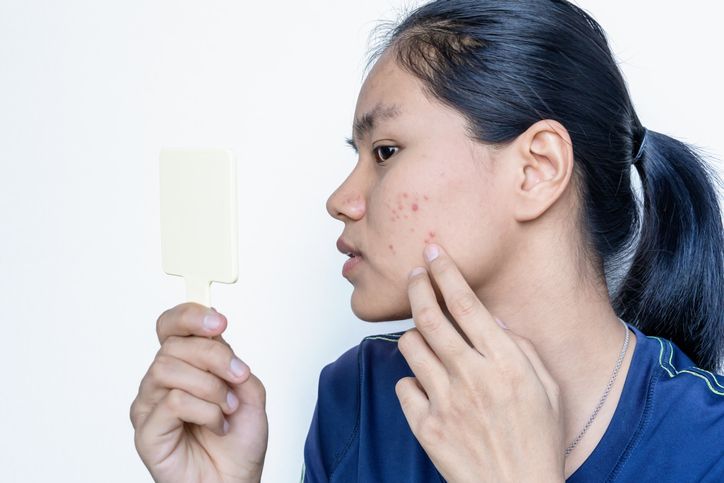
Clearing acne takes patience. Work with a board-certified dermatologist if pimples persist despite using these remedies. The good news is that acne is not something you have to tolerate. Today, almost every incidence of acne may be successfully treated. Sometimes a board-certified dermatologist is needed for assistance with this. Dermatologists can treat current acne, stop new outbreaks from starting, and lessen the risk of scarring.
Before many of these treatments start to work, it may take them two to three months. Even if a prescribed treatment doesn't have an instant impact, it's crucial to be persistent and patient.
FAQ
Are acne home treatments effective?
The use of natural therapies is popular. Although the majority of home remedies for acne have not been proven to be clinically beneficial, they are nevertheless a possibility for treatment.
Is acne a result of your exercise?
You might be correct. You don't need to stop working out if that's the problem. You may keep up with your preferred exercise routine, participate in sports, or visit the gym while still achieving smoother skin.
Do my food choices affect my acne?
You may have heard that consuming foods high in fat, dairy, or sugar might make acne worse. That is not generally the case. The hormones that activate the oil glands and cause them to create sebum, which clogs or blocks pores, are the primary cause of acne. Breakouts happen when those pores become irritated from bacteria growth. No matter what you consume, there are significant hormonal changes.
If I have acne, when should I visit a dermatologist?
Make an appointment with a dermatologist if over-the-counter acne medications and mild face washing are ineffective for you. Severe acne cases necessitate a more intensive treatment strategy to avoid acne scarring.

Book Now to Experience
Acne Treatment
1 Minute Self-Registration
Date should not be before minimal date
Recommended Articles
COPYRIGHT© NEW BEAUTY MANAGEMENT LIMITED 2025. ALL RIGHT RESERVED.


